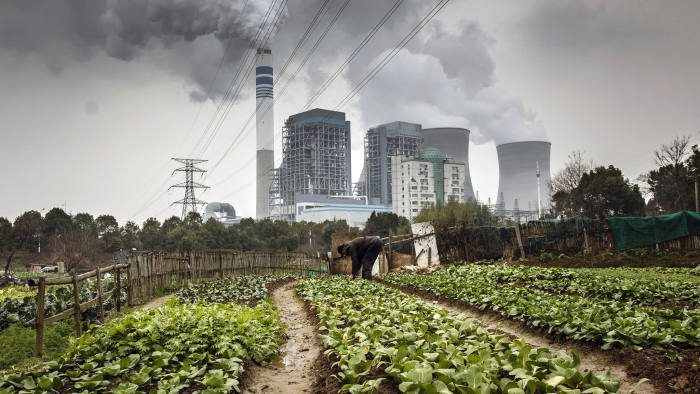

Japan says it has changed its mind about coal. Its decision to rein in official support for coal-fired power plants in developing countries marks a “turning point” in the country’s climate change policy, according to environment minister Shinjiro Koizumi.
The step is overdue. The World Bank and other development bodies have become increasingly reluctant to back projects that burn coal, the fossil fuel responsible for more than 0.3°C of the roughly 1°C increase in global temperatures since the late 1800s. So have private banks and OECD export credit agencies.
Yet until now Tokyo has remained a source of financing for coal projects abroad using Japanese equipment — and is still building new coal plants for itself at home. Its new policy does not entirely outlaw support abroad, which is regrettable, but Mr Koizumi says it will make it much more difficult.
Now it is China’s turn. The vast Belt and Road Initiative that President Xi Jinping launched in 2013 is also driving infrastructure projects around the world and despite official claims that the programme is “green and clean”, too much of this infrastructure burns coal. One study published last year found 36 per cent of the $51bn spent on power generation and transmission between 2014 and 2017 went on coal, while just 11 per cent was spent on solar and wind power.
The same report estimated that China — a renewables juggernaut — was backing more than a quarter of the coal plants being developed worldwide outside its own borders.
There are many reasons why this must stop, starting with global temperatures. A raft of new coal plants undermines the main goal of the 2015 Paris climate agreement, which aims to keep global warming well below 2°C. China’s development model relied heavily on coal and led its annual emissions to more than double in the first decade of this century. China is now the world’s largest emitter by far and if its model is followed by countries signed up to the Belt and Road Initiative, it is hard to see how the Paris agreement targets could be met. Like Japan, it still plans to build new coal plants at home as well.
This is not the only problem. Each new coal plant in a developing country risks locking that nation into a fossil-fuelled energy system for decades. That makes scant financial sense at a time when clean energy costs are falling so much that new renewables are cheaper than new coal plants in many parts of the world. In China itself, 43 per cent of the existing coal power fleet is already uncompetitive, one study claimed this month. On top of that, coal plants usually worsen air pollution and raise healthcare costs.
In the past, China could argue it was backing coal-fired power abroad because developing countries themselves wanted it. That claim is growing more complicated. In Kenya last year, a court halted construction of a Chinese-backed coal-fired power station on environmental grounds. Supporters of the $2bn project said it would sharply boost the African country’s power output and help to ease blackouts. It would cut costs for consumers at the same time, they argued.
Critics countered that the power station would also cause air pollution and destroy the breeding grounds of endangered species. Those claims held sway then and are likely to do so again — not just in Africa.
President Xi has repeatedly said China is committed to tackling climate change and building an “ecological civilisation”. The rest of the world depends on the country achieving that goal fast, not just inside its own borders but well beyond them as well.
Guest post from Financial Times




